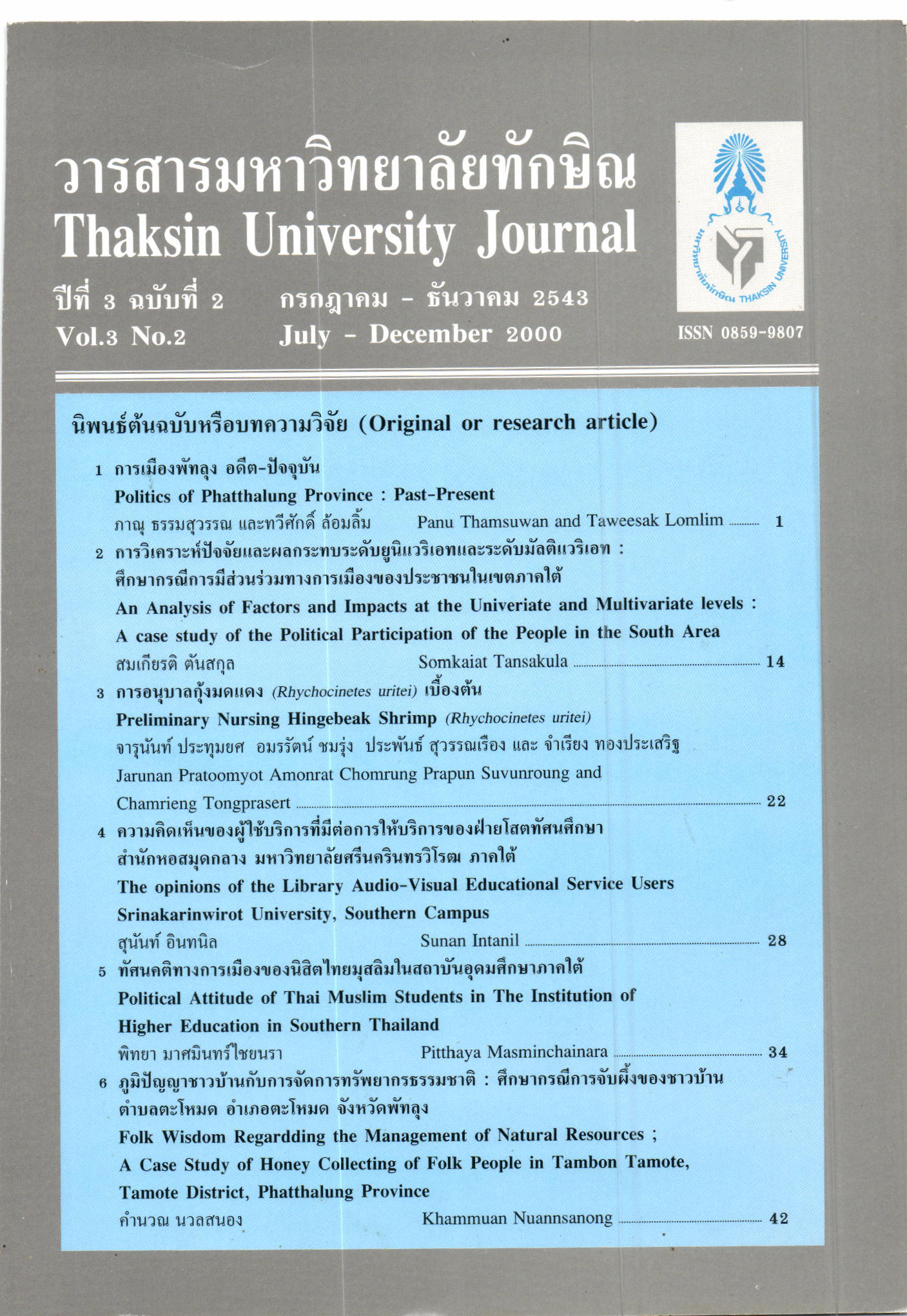ภูมิปัญญาชาวบ้านกับการจัดการทรัพยากรธรรมชาติ : ศึกษากรณีการจับผึ้งของชาวบ้าน ตำบลตะโหมด อำเภอตะโหมด จังหวัดพัทลุง
Main Article Content
Abstract
This research utilized a case study method in studying people's folk wisdom regarding the management of natural resources, concerning honey collecting in Tambon Tamote, Tamote District, Phatthalung Provhce. The study focused on community ecology, method and procedures used in honey collecting and folk wisdom in the management of natural resource. The researchel collected field data from interviews, obseryations and photographs. The reseaLrch results were presented in a descriptive analysis method. The results were as follows: Conceming community ecology, the community is mainly located on a plain at the foot of the mountain. To the west is the complex and highrising Bantat Mountain Range covered with lbrests throughout the range, creating important sources of natural resources such as foresls, water sources. and wild animals. These are tropical rain or monsoon forests, which serve as the homes for biodiversities and various speccies. From past until present, forests had been imponant life sustaining resources of community people. Furthermore, the community had consistent social development. The gathered evidences
revealed that Ban Tamote is an old community originated in Sri-Ayuttaya Period. The community later fomulaled its way of lif-e that reflccted local characteristics af'furding its mcmbers to live together in peace harmony. Community ecology was then the base of folk wisdom that occuned in the forms of knowledge, ideas, experiences and beliefs, which had been refined, compiled, adapted and handed down for use systematically, allowing people to live in unison within the environment of the their community. Therefore, understanding community ecology is an imponant step in studying folk wisdom and thc management of natural resources,
The case study of honey collecting by folk people in Tambon Tamote showed that this was their way of generating income from the lbrests or nature! which they were close to. These folk people considercd the lbllowing aspects and procedures when they collected honey: scasons location of the
honeycombs, tools preparation, steps used in collccting and beliet.s gained from collecting honey. Therefbre, their practicc revealed different clements of folk wisdom and the management of natural resources along with their conduct that rellectcd the use of fblk wisdom in the management of natural resources. Moreovcr,
the researcher offered additional discussion, recommending factors that could hclp to crcate folk wisdom; enhance natural resource management; maximize the utilization of tblk wisdom and natural resource management for community development,
n


